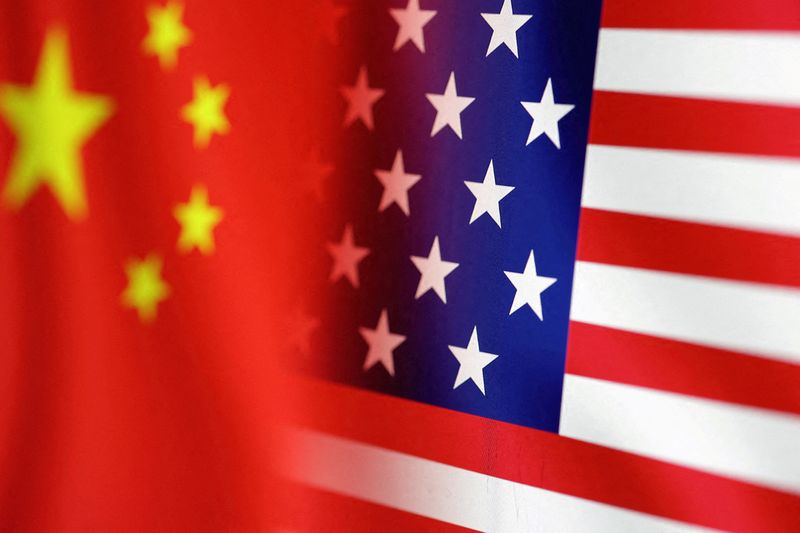By Michael Martina
WASHINGTON (Reuters) - U.S. Representative John Moolenaar, a Michigan Republican, will be the next chair of the House select committee on China, replacing Representative Mike Gallagher, who said last week he would step down from his office in Congress in April.
House Speaker Mike Johnson said in a statement on Monday that he had appointed Moolenaar to run the bipartisan committee on strategic competition with China's Communist Party (CCP), crediting the Michigan representative's service in Congress with earning him "the respect of his colleagues on both sides of the aisle."
"Our country, our economy, and our national security will be well-served by his wisdom and guidance in the ongoing work of this critical select committee," Johnson said, adding he would take up the role after Gallagher had left Congress.
The select committee has no legislative power, but under Gallagher has become a high-profile venue where lawmakers make recommendations to address economic and national security threats to the U.S. posed by China.
A desire for a hard line in dealings with Beijing is one of the few truly bipartisan sentiments in the deeply divided Congress, with both Republicans and President Joe Biden's Democrats calling for increased efforts to counteract China's global influence.
Gallagher, the first to lead the committee set up when Republicans took control of the House in 2023, had sought to work closely with Democrats, including the panel's ranking member Raja Krishnamoorthi.
Moolenaar said in the statement that he looked forward to working with Krishnamoorthi to help the U.S. "win the competition against the CCP."
Several committee staffers from both parties told Reuters they were optimistic Moolenaar's appointment was a positive signal for continued bipartisan cooperation on China issues.

One of the aides said Moolenaar was closely aligned with Gallagher's vision of the committee, adding he had a particular focus on economic competition with China and was supportive of U.S. manufacturing.
Michigan is home to major U.S. automakers that have warned Washington that domestic manufacturing could take a big hit from a potential wave of inexpensive Chinese electric vehicle imports. Moolenaar has joined other lawmakers in urging the U.S. government to increase the current 27.5% tariff on Chinese vehicles.